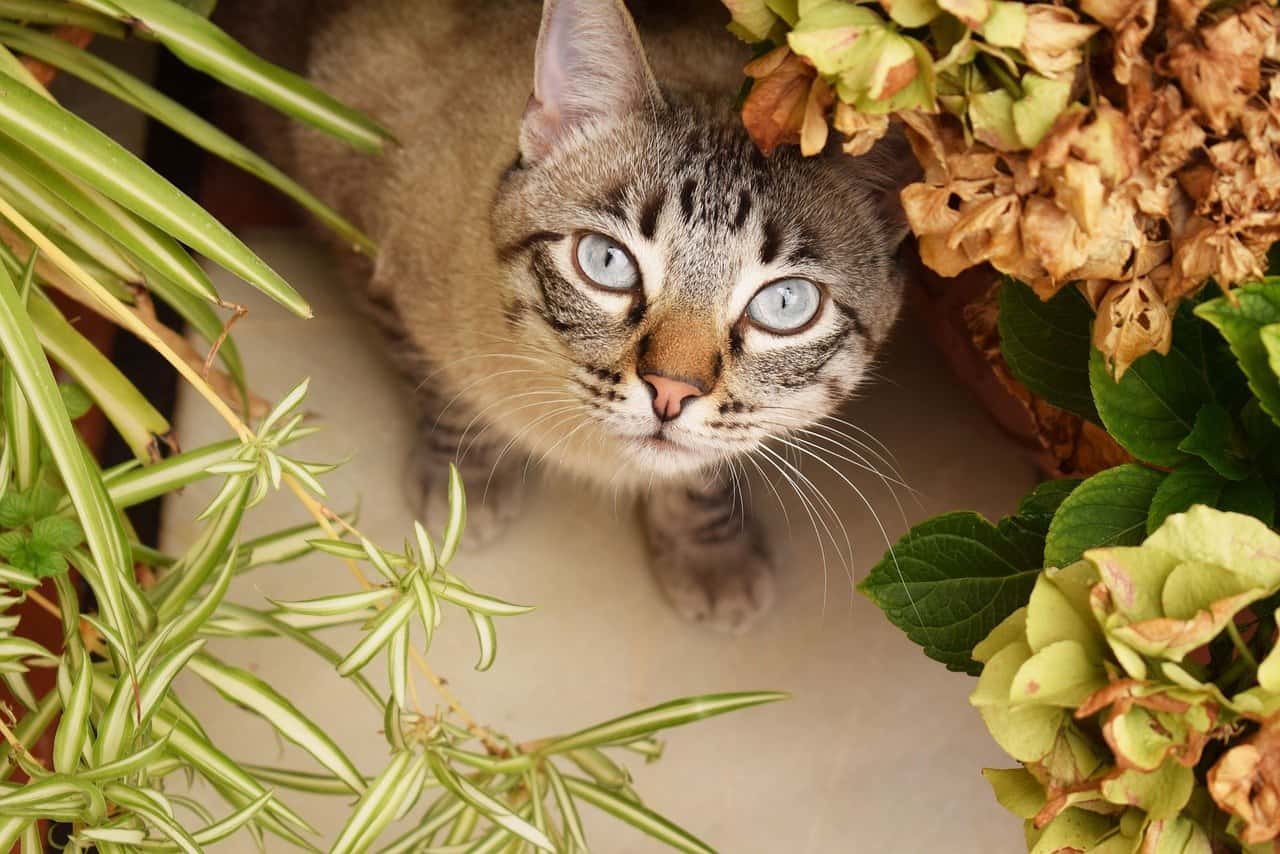We all know cats are carnivores. They’re meat eaters through and through, and they’re the only members of the family not worried about eating their vegetables. Why then, are you constantly catching your cat taking bites out of your houseplants? Your poor plants are looking battered and bitten while your cat happily munches on those stems, leaves, and petals. Destroying houseplants is an unfortunately common behavior for cats. There’s potential risks if your plants are toxic, and even if they’re safe, a plant-hungry kitty can be a frustrating problem.
The truth is, cats eat houseplants for a few different reasons. Should you be worried? Keep reading to find out.
Why Cats Eat Houseplants
We can’t know for sure why some cats eat houseplants until we invent a way to either speak their language or read their minds. Feline behaviorists, however, have come up with a few theories that would explain the behavior.
Boredom
Every cat, regardless of activity level, needs daily exercise and stimulation. If they don’t get it, not only are they at risk of becoming obese, their mental health also suffers. And just like bored little kids, cats will try and find their own ways to entertain themselves. When they have energy to burn but don’t know what to do with it, they’ll let their curious natures take over. For a lot of cats, this means investigating every interesting-looking thing in the house. Houseplants fall under this category, and a curiosity-driven nibble could turn into a full-blown habit.
Nutrients and Fiber
A lot of animals have the ability to know when their diets are lacking specific nutritions. They’re not reading the back of their food bag, but they can biologically sense when something isn’t quite right. Some veterinary nutritionists theorize that while cats are true carnivores and don’t necessarily need to eat plant or vegetable matter, they have an intrinsic knowledge for when they would benefit from additional nutrition. Plants can be a great source of certain vitamins, minerals, and especially fiber. Some cats could nibble on plants in hopes of getting that additional nutrition.
Taste
There are other experts that say it has nothing to do with nutrition and everything to do with taste. It’s the same with humans–taste is often a more powerful motivator. If something tastes good, cats and humans are likely to keep going back for more, regardless of whether it’s good or bad for them. Your cat might have taken that first nibble out of boredom, and now they’re hooked because they realized your plants taste great.
Stress
Vetstreet points out that when cats eat houseplants, it could be a sign of displacement behavior. This is when an animal does something that seems unrelated to a more serious underlying issue. For cats, displacement behaviors are often related to stress. The stress in your cat’s life could be causing them to act out and habitually destroy your houseplants. Other displacement behaviors could be over-grooming or excessive meowing.
Should You Be Worried?
Chewing and swallowing bits of your houseplants can be extremely dangerous depending on the type of plant. There is a long list of common plants and flowers that are toxic to cats. Some cause minor issues like temporary digestive upset, but others can cause serious illnesses including kidney failure.
It’s extremely important to take inventory of all your plants and research whether or not they are toxic. You should also be extra careful about fresh flowers or bouquets that you bring into your house. Click here for a list of toxic plants that could harm your cat.
Even if a plant is listed as generally safe for cats, it can still cause minor health issues. According to Cat Health, any plant matter has potential to disrupt your cat’s sensitive digestive system. This is usually only if they consume large amounts of the plant. In these cases, the cat usually vomits (probably on your carpet) and feels better.
As always, if you’re ever concerned about your cat’s well-being, talk to your vet. Take a picture of your plant and try to identify it if you can. It’s also helpful to know how often and how much of the plant your cat likes to eat.







